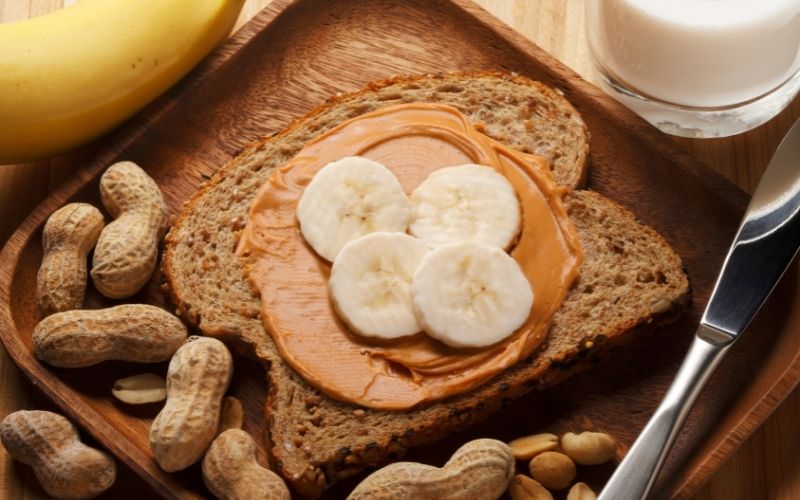How To Wind Down for Better Sleep—Especially if You’re an Introvert
Original Post | Erica Sloan・December 15, 2021
Picture the pinnacle of social exhaustion: Perhaps, you’ve just spent four hours at a work holiday party, meeting the humans behind a bunch of Zoom squares IRL for the first time. Or, maybe you had a day of reconnecting with family members you haven’t seen in two, time-blurred pandemic years. It would seem that hitting the hay would be the most obvious solution—but once you get into bed, your body seems to say, Not so fast. For introverts, in particular, the draining nature of being social can leave you, paradoxically, chasing sleep.
In general, that counterproductive scenario springs from the difference between feeling fatigued and feeling tired, says psychologist and behavioral sleep-medicine specialist Shelby Harris, PsyD, DBSM, author of The Women’s Guide to Overcoming Insomnia. While the former reflects a total drain of energy (which tends to happen for an introvert after a social event), the latter is more about physical sleepiness, which is that drowsy feeling that allows you to drift off to dreamland.

“For introverts, socializing tends to overstimulate the brain and body, leading some to feel irritable, indecisive, or on edge.” —behavioral sleep-medicine specialist Shelby Harris, PsyD
“For introverts, socializing tends to overstimulate the brain and body, leading some to feel irritable, indecisive, or on edge, or even to get physical symptoms, like a headache or muscle aches,” says Dr. Harris. “While all of that can be extremely exhausting, it doesn’t necessarily lead to feeling sleepy.” By contrast, a social event can actually flood the brain with uppers like dopamine, adrenaline, and cortisol, which, for an introvert, tend to be perceived negatively, says Mike Dow, PsyD, psychotherapist at Field Trip Health, a psychedelic-assisted therapy practice. In fact, these neurotransmitters can keep you reeling long after an event wraps up (cue: the introvert hangover).RELATED STORIESHow To Make Waking Up in the Dark Suck Less, According to…Not an Early Bird or Night Owl? Science Suggests There May Be…
Trying to get to sleep in that state can require a whole lot more than simply getting into bed; after all, the process of falling asleep is nothing like an on-off switch, biologically, says Dr. Harris. For an introvert, especially, easing your mind into sleep mode is best done with a calming pre-bed ritual. Below, the experts share tips for socially exhausted introverts who want nothing more than to get a good night’s sleep.
It’s especially hard for introverts to sleep after a highly social experience, but these 5 tips can help
1. Create a container for your thoughts.
“Introverts are internal processors,” says psychologist Laurie Helgoe, PhD, author of Introvert Power: Why Your Inner Life Is Your Hidden Strength. “They often take inputs from conversations and process them later, which can mean mulling over what someone said, replaying or continuing a conversation, coming up with a better comeback, and the like.”https://556d592cd02b0abe412f5bc25f63d090.safeframe.googlesyndication.com/safeframe/1-0-38/html/container.html
Journaling can help put a pause to that spiral by providing a space for you to essentially unload all of your thoughts, and, if you’d like, feel free to return to them later—ideally at a time when you’re not trying desperately to get catch precious zzz’s.
2. Talk back to negative self-talk.
In re-assessing a social event (as introverts are wont to do), you may find that certain percolating thoughts devolve into negative or anxious ones. For example, it’s easy to start over-evaluating and hyper-personalizing, says Dr. Dow. “Maybe you start thinking, ‘Was Cindy looking at me weird? I must have done something wrong.’ And as the night goes on, the thoughts can turn more catastrophic in nature, leading to something like, ‘If I don’t get a good night’s sleep, I’m going to botch this presentation tomorrow, and if that happens, I could get fired,’ and so on,” he says.https://556d592cd02b0abe412f5bc25f63d090.safeframe.googlesyndication.com/safeframe/1-0-38/html/container.html
In that case, he suggests employing one of the classic strategies of cognitive behavioral therapy, which is to reconsider thoughts and feelings not as facts but merely as information, which you can choose to disregard. “Access the best parts of yourself to talk back to those inner voices,” he says.
3. Write in a gratitude journal.
Taking time to remember all the things for which you’re grateful—whether they include highlights from the social activity of the day, or something else entirely—can also help you forgo the kind of thought-spiraling that tends to ward off sleep.https://556d592cd02b0abe412f5bc25f63d090.safeframe.googlesyndication.com/safeframe/1-0-38/html/container.html
“Because introverts are natural problem-solvers, they can get stuck in focusing on what’s not working,” says Dr. Helgoe. “But a gratitude list can help you balance that problem orientation by reminding you of what is working.” And that, in and of itself, can be incredibly soothing.
4. Practice some non-screen-based relaxation.
While it’s tempting to scroll through Instagram or scan emails in bed to occupy a restless mind, that level of mental stimulation, combined with the melatonin-suppressing blue light, is a recipe for wakefulness. Instead, do anything non-screen-related that feels calming and relaxing, whether that’s reading, knitting, listening to music, or even coloring or doing a simple crossword or jigsaw puzzle, says Dr. Harris. (You can also practice mindfulness meditation, but because this can be challenging to really sink into with an overactive mind, Dr. Harris says it’ll be most beneficial for someone who already has a daytime meditation practice.
If you’re really at a loss for where to start, try connecting with each of the five senses, says Dr. Dow: “Soothe your sense of touch with a bath, your sense of smell with a lavender candle, your sense of sight with dimmed lighting, your sense of hearing with calming music or a meditation track, and your sense of taste with a nighttime tea.”
5. And if you’re tossing and turning, get out of bed.
Trying to make sleep happen often keeps it from, well, happening. So, instead of remaining in bed and trying to will yourself asleep, get up, walk into another room, and return to whatever wind-down exercise you were doing beforehand in dim lighting, says Dr. Harris: “Simply changing what you’re doing and where you’re doing it can often help stop an overactive mind in its tracks.”
Oh hi! You look like someone who loves free workouts, discounts for cutting-edge wellness brands, and exclusive Well+Good content. Sign up for Well+, our online community of wellness insiders, and unlock your rewards instantly.






